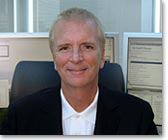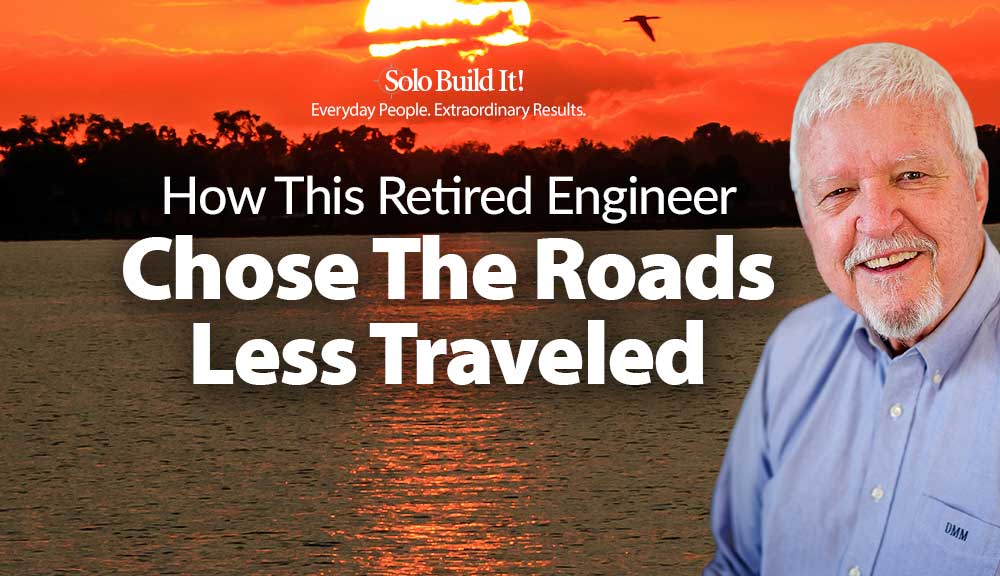
I’m a retired engineer and long time online business owner and love to write. My business allows me to write as much as I’d like on any Florida subject I find interesting and get paid for it. Since I am interested in so many things, I never run out of subject material.Mike Miller from florida-backroads-travel.com
Like in Robert Frost’s famous saying about the road less traveled, Mike Miller, has always preferred driving on Florida’s backroads. He enjoyed driving cross-state, both for business and pleasure.
Over the years he discovered hundreds of little known villages and towns, places of interest, home-style accommodation, and cozy restaurants. He’s also a member of “The Florida Historical Society,” and belonged to most of the local historical groups in the 16 Florida cities he lived in.
When the real estate market in Florida collapsed, Mike took a financial hit. He was 70 years old, and needed a way to supplement his Social Security income.
There was no demand for his engineering or brokerage skills, but perhaps there was a demand for his extensive Florida travel and history knowledge?
Armed with his love for writing, and Solo Build It!’s rock-solid, online business training and tools, he set to work. The outcome? That’s what you are about to read in our interview with Mike.
1. Mike, tell us a bit about your professional background as a civil engineer and real estate broker. I believe there’s a connection between your career and florida-backroads-travel.com that may surprise our readers.
After graduation from the University of Florida, my engineering career was spent almost entirely in Florida. I designed hundreds of commercial sites, public works projects, and residential subdivisions from one end of Florida to the other.
I also had consulting positions during the construction of Walt Disney World, Epcot, and Universal Studios that required me to travel throughout the state to assist in the inspection of components being manufactured and assembled at various locations statewide.
Along the way I obtained a real estate broker’s license and traveled the state helping clients find properties for development or investment. All of these things have given me an in-depth understanding of all geographic regions of the state.
I love to drive, so I intentionally made most of my business trips on the back roads of the state. It took longer, but the scenery was better and the pace of traffic less hectic than on the interstate highways.
So, that’s how I collected all the knowledge, photos and first-hand experience for my site during my professional career.
The knowledge for his Florida back roads travel site came as a “free” by-product of his profession, and slowly grew over 3 or 4 decades.
What kind of “accidental” knowledge have you acquired in your life? Perhaps there’s a wealth of valuable information right under your nose. You just need to look at it from a business perspective. If you need help discovering your hidden bonanza of knowledge, signup for our Retirement Business Mini Course.
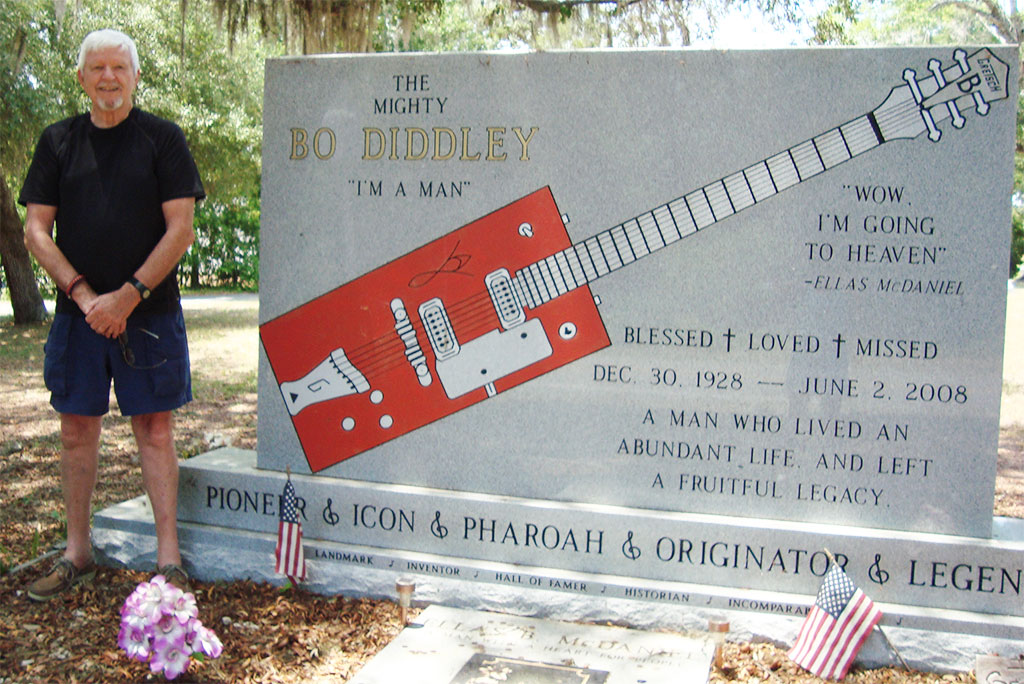
2. What was your goal when you first started your website? Has this goal changed over time?
My goal was to earn money to supplement my Social Security. I was 70 years old when the real estate market in Florida collapsed. It really damaged me financially. There was no market for my real estate, nor for engineers or real estate brokers.
I had to come up with a way to make some money. My goal remains pretty much the same and it has worked out very well for me.
To earn money from your site or blog you first need traffic. Free, organic traffic from the search engines and — to a lesser extent — from social media channels is the basis for any form of sustainable monetization.
However, many would-be solopreneurs can’t overcome the traffic hurdle. Depending on the platform, the percentage of sites that have near-zero traffic is between 74% and 87%. That means only 13% to 26% of site owners manage to generate traffic to their sites.
So, how did Mike do it? He followed Solo Build It!’s proven Content > Traffic > PREsell > Monetize process, outlined step-by-step in the SBI! Action Guide.
The Action Guide provides a clear roadmap. It tells you exactly what to do at each stage during your website- and business-building journey. As a result, your chances of attracting a lot of targeted traffic increase substantially.
3. Tell us about your philosophy regarding content. How do you know what your prospective customers are looking for? Where does this information come from?
Solo Build It! helped me develop a philosophy of content that focused on giving my website visitors what they wanted. Its tools helped me focus on ideas that might work based on what my interests are and what I know. Other tools helped me understand supply and demand for these interests.
From those tools I realized that I wanted to provide content that matched my own interests. That would mean I’d have no problem creating content and would enjoy writing it.
I basically decided there must be enough people that like what I like, so I focused on pleasing myself and by proxy, my visitors.
You probably have a few ideas about what topic or niche you are interested in or knowledgeable about. But how can you know whether this topic is in demand? That’s where Solo Build It!’s brainstorming and keyword analysis tool comes in.
Brainstorm It! allows you to:
- generate niche ideas
- compare up to 3 niches in a single brainstorm
- find the best keywords (aka topics and subtopics) to write about
- decide with confidence whether your niche is viable (i.e., it’s not too small, not too competitive, and has good income potential).
Want to take a look under the hood of Brainstorm It!? Watch the video tutorial below.
4. In which ways do you make money with your online business? Why did you choose these monetization methods?
My monetization methods are very simple. I have only three of them:
First, I sell ad space on my pages and get paid per page view. I use a full service ad management firm, Mediavine, and I don’t have to do anything but create content. If people like the content, they spend time reading my pages and I make money from the ads Mediavine has placed on my website.
Second, I take the content of my website and create books on various subjects. I began doing only Kindle and PDF versions, but have discovered over the years that soft covers do even better for me, so I have both Kindle and soft cover versions of all my books. I sell the books only on Amazon and in person at speaking or book signing events.
Third, I created dozens of Powerpoint presentations on my website’s content. I speak at various adult learning institutions, historical societies, and civic groups and get paid a fee for the speech and also get to sell some books.
I chose these monetization methods because they can be accomplished without my having to do a lot of selling and bookkeeping. I have always wanted to be a one person operation, and these methods help me stay that way.
All of my income is direct deposited into my bank account. I don’t have to do any invoicing or nagging for payment like I did as a consulting engineer and real estate broker. And I don’t run the risk of losing a fortune like I did as a real estate developer.
You can stay on the more passive end of income generation, like Mike did, and monetize mainly via ads and digital goods. While the profit margins are lower than with more active monetization models, your time investment and “hassle level” are lower too.
A combination of advertising, affiliate marketing and ebook publishing is a great income mix for a one (wo)man online business.
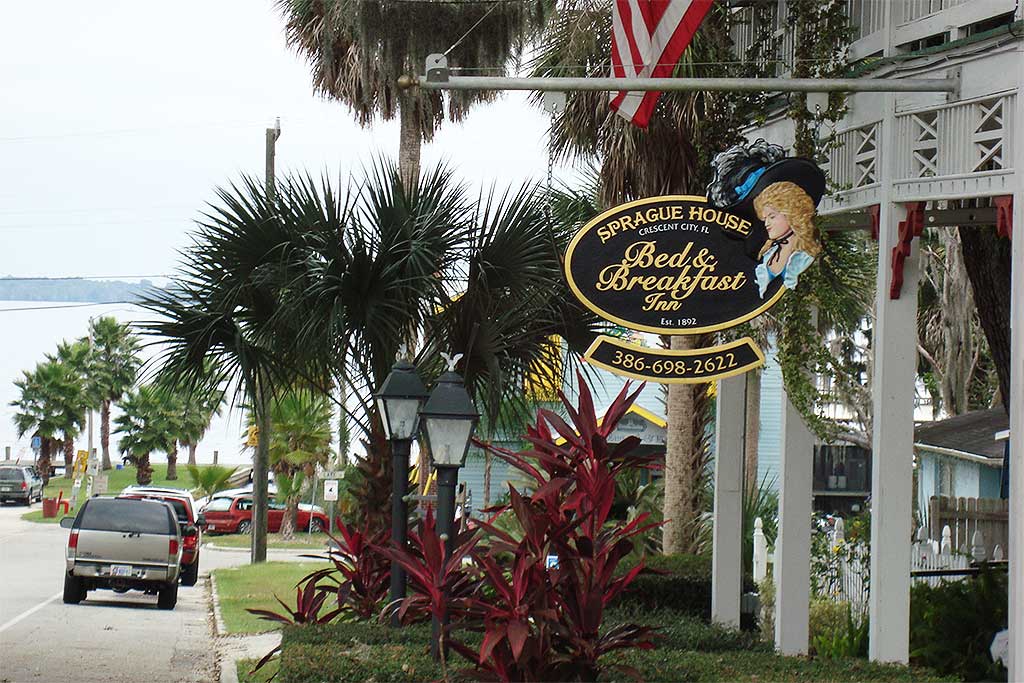
5. You’ve published over 20 books on Amazon, both as Kindle books and as paperbacks. Can you share some best practices around publishing at Amazon?
When I started with Amazon, I created only Kindle books. SBI! had produced a detailed guide on how to format a book, upload it to Amazon, the whole works. It was an extremely useful tool that worked like a charm. It’s one of many reasons why I love SBI!.
My Kindle sales were going well when I decided to make all of the books into soft cover versions too. Amazon had a subsidiary called Createspace, and they make it easy to create a cover and guide you through creating a manuscript in Microsoft Word.
If I had any problems, it was always easy to call or email for advice. It was a pleasure to work with them.
Createspace and Kindle have now merged into a single point of contact — Kindle Direct Publishing, but it is still very easy to work with them.
You can also sell your ebooks on your own site, typically in PDF format. In this case, you have to handle the payment processing yourself. The easiest option is with a PayPal “buy now” button. If you want more advanced functionality, you can use a third party provider like Gumroad or SendOwl.
Both options, selling on your own site versus on a marketplace like Amazon, have their pros and cons. It just depends on your preferences.
As an SBI! member you’ll have access to a whole series of articles around creating, publishing and selling ebooks and other digital goods, like online courses or audio files.
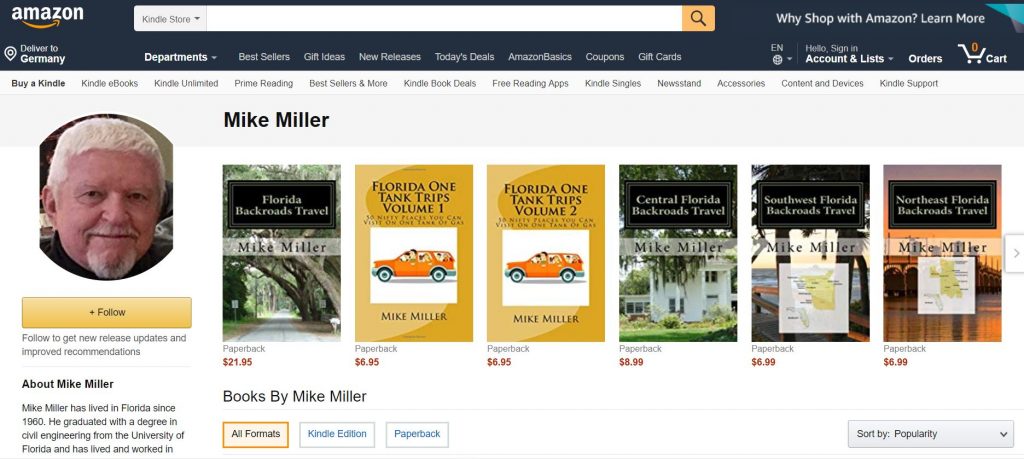
6. Do you use social media to promote your business? If yes, which platform works best for you and why?
I have Twitter, Facebook, and Pinterest accounts. Over the years I’ve discovered that Facebook is by far the best platform for what I do.
My website covers a lot of Florida subjects: day trips, scenic drives, town information, things to do, history, culture – I cover a much broader range of subjects than a tightly focused niche-based website would normally cover.
Facebook has thousands of special interest groups. I joined dozens of these groups and share relevant content on my website with those groups. I do this every day with at least one of my website pages.
I have experienced the thrill of now and then seeing something go (almost) viral in my small way. For example, one day I shared a post about a now defunct Florida tourist attraction and it received about 12,000 page views in two days. That translates to some nice money for the few minutes it took to share it on Facebook.
Back? Great. When I first checked out Mike’s site, I wondered why I couldn’t find any links to his social media channels, especially to his Facebook Page where he has a large community of 70,000 fans. Only after talking to Mike, I noticed the blurb at the very bottom of his pages.
When I asked why he doesn’t put the blurb higher up on his pages (after all, 70K fans are great social proof), he said: “I hesitate to put the Facebook block higher up on the page because Mediavine pays me for sessions and that requires not just a page view but some time on the page. I don’t want people to jump off too quickly.”
The lesson? Whatever you do with your site, weigh the pros and cons. Consider what works best in your specific situation, for your monetization models, and for your audience.
Another takeaway? Focus on one or two social media platforms, and do those well. You’ll have much more success with this selective approach than when you try to be everywhere. If Facebook is your channel of choice, follow Mike’s example and actively contribute to relevant Facebook Groups, or consider creating your own group.
An example post from Mike’s Facebook Page. His posts always get a good number of likes, relevant comments and shares.
7. You own a second online business, living-aboard.com. What was your reason for starting it?
I have lived aboard my boats several times in my life and loved the simplicity of the life style. During these periods I met many people who made the wrong choices in buying a boat or deciding where to live.
A lot of people have very unrealistic ideas of what it’s like to live aboard. I wanted to educate these people so I wrote a small book titled “Living Aboard a Boat.” I published it using Createspace and sell it on Amazon.
The book was selling fairly well when I had a lightbulb moment: why not convert the content of the book into a website? So that’s what I did. Amazon requires you to prove you are the author of the website content if you convert it into a book, and vice versa. It’s not a difficult process.
The website does not receive as much traffic as Florida Backroads Travel, but primarily because it has limited potential for content and also because I haven’t had time to develop it properly.
A website about living on a boat should have a forum, and I didn’t want to take the time to set it up and monitor it on a continual basis.
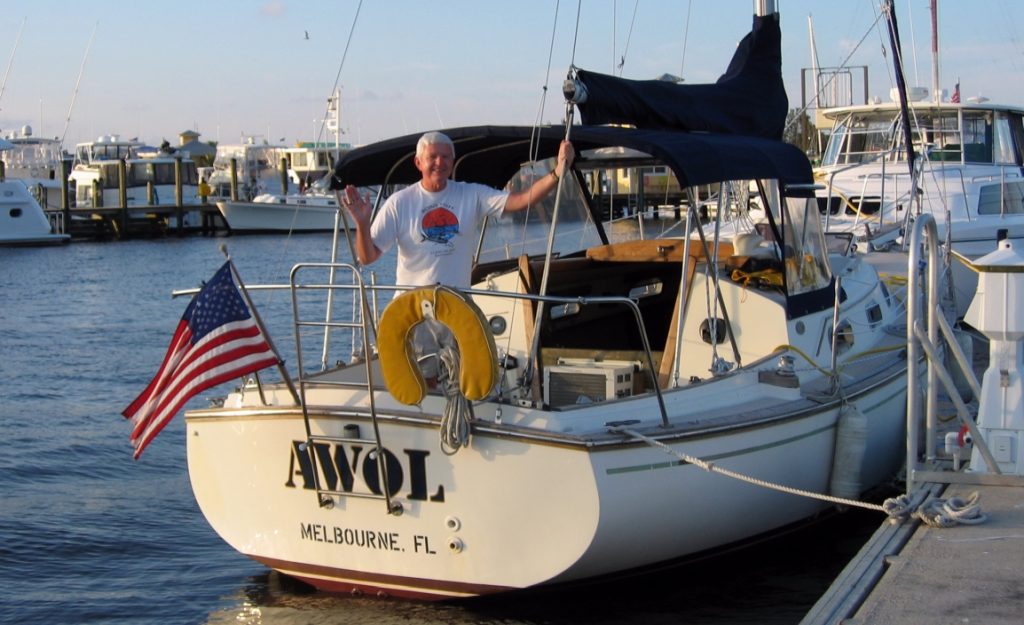
I was intrigued and wanted to know more about his process. So I asked…
How much did you have to modify the book content for the website? How long did it take you from start to finish?
Mike’s reply: “It wasn’t too hard to turn the book into a website. I already had it organized logically into chapters. Each chapter became a Tier 2 page on the website. The original manuscript was in MS Word format, so I could just cut and paste into SBI!’s BlockBuilder and tweak it here and there. It didn’t take much time, perhaps a few days at the most.”
That’s pretty neat. For a rather small time investment Mike was able to share his knowledge about living on a boat with a wider audience than his book could have reached, and he initiated a second income stream.
In case you’re wondering what a “Tier 2” page is, let me explain. An easy to navigate website is typically structured into 3 tiers or levels:
- Tier 1 is the home page, representing the overall niche of the site.
- Tier 2 pages are the main sub-topics of the overall niche. They build the navigation bars that you’ll find either vertically down the left or right side of a website, or horizontally across the top.
- Tier 3 pages are the supporting, more in-depth pages for each main sub-topic. They account for the largest part of the site content.
Visualization of a website’s 3-tier structure. KFCP stands for “keyword-focused content page.”
8. Does seasonality have a big impact on your traffic and income? Which monetization methods help you most in lower traffic periods?
Since my content is all about Florida, you would expect a big seasonal variation in my traffic and income. That has not been the case, however. The variation has been moderate.
For example, my peak traffic months are June, July, and August. These are the hottest months and not too many tourists come to Florida in those miserable hot periods.
This anomaly is because most of my website traffic comes from Florida residents. I assume that in the summer they are looking for things to do because the kids are out of school and they have some vacation time.
My monetization follows the traffic variation, so I make more income from ads and books during the summer.
And some topics (think Halloween costumes, Christmas gifts, Thanksgiving recipes) are so extremely tied to a certain time of the year that you’d best avoid them as your business niche, unless they fit under a more inclusive theme or you have other, non-seasonal income sources.
9. What do you enjoy most about being an online business owner? How has it changed you, your life, your family?
I love to write. My online business allows me to write as much as I’d like on any Florida subject I find interesting and get paid for it. Since I am interested in so many things, I never run out of subject material.
I can also work from home, Starbucks, a camp site, my boat, or from anywhere in the world. That’s freedom I never had before.
The income far exceeds what I receive in social security, so my “retirement years” are much more pleasant than they would be without the online business. The income will also transcend my life. When I die, my widow will still receive continuing passive income from the online business and spinoff books.
- do what he loves (and get paid for it!)
- work from wherever he wants
- live comfortably during his retirement years, thanks to the extra income, and
- support his spouse financially, even after his death.
I don’t know about you, but I find these benefits pretty irresistible. If you agree, get started with SBI! today, totally risk-free.
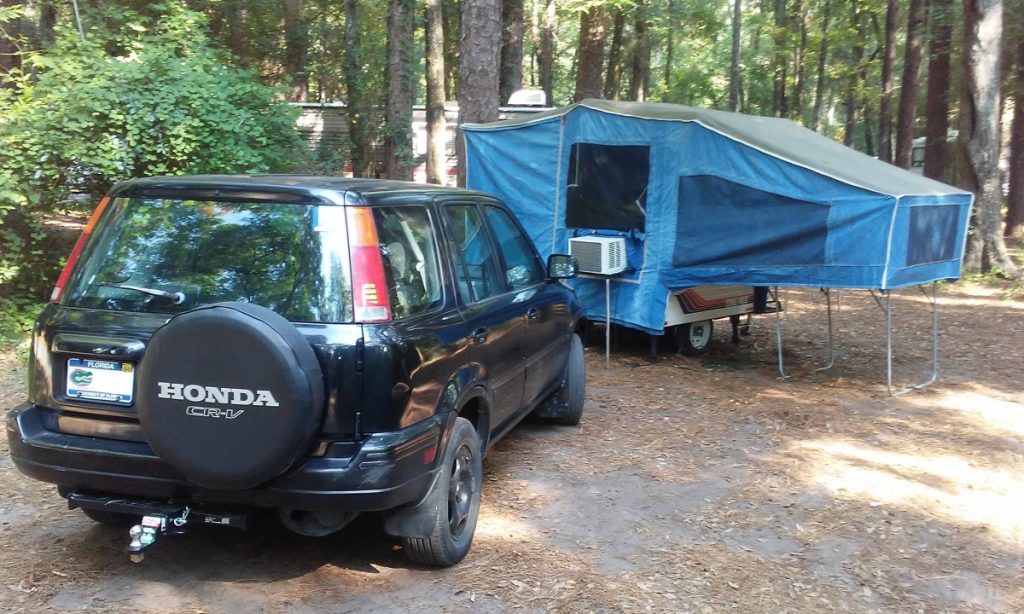
10. And finally… What’s your top tip for someone who is just starting an online business?
Pick something you like so you won’t get tired of doing it.
Don’t give up when things get tough, just keep plodding along like the proverbial tortoise and you will get there.
Start your business with SBI! and follow their Action Guide. It will show the right direction, but still give you some flexibility to use your own judgment. You will have access to advice from not only Solo Build It! staff but thousands of other successful online business owners.
Make sure you never forget the valuable tool you have in Solo Build It!. I once calculated that SBI! provides tools that would cost almost $4000/year if I had to buy them separately. With the forums, “tips and techniques” articles, constant updates to search engine requirements, and on and on, it’s like having hundreds of helpers, all for only $300/year.
That and my time are the only costs of business I have.
- Pick a topic you like. Building a business takes time and effort. You are in it for the long term. So, when you choose your niche, ask yourself: Will I still want to write about this in 5, 10, even 20 years?
- Don’t give up when the going gets tough. 20% of small-business owners give up after their first year, and about 50% after their fifth year. The main reason for giving up? There’s no market need for their service or product. (Source: Fundera.com) That’s why Mike’s next tip is super important.
- Start your business with a platform like SBI! where you get not just the tools for building a business, but also the necessary education. For example, the first 5 DAYs (aka chapters) of the Solo Build It! Action Guide will lead you through an intensive research process. By the end of this process, you will know whether your business idea is viable or not. Isn’t that a much better way to start a business online than relying on your gut feel? For even more retirement business lessons, read our follow up interview with Mike.
Ready to start your own retirement business around a favorite hobby, knowledge or skills? Get started right away and join the millions of online business owners who are loving having an income generating business before and during retirement.
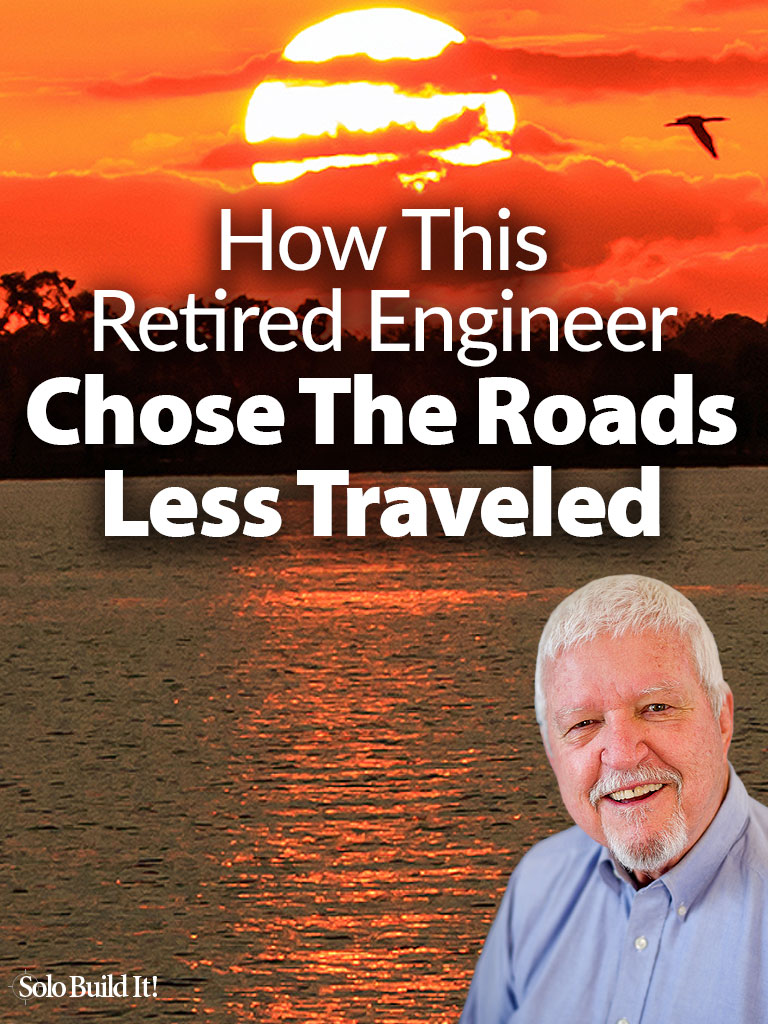
Latest posts by Margit Streifeneder (see all)
- From Zero to 1 Million Fans: A Community-Driven Success Story - October 16, 2025
- Six Figures on Her Terms: A Lifestyle Business Success Story - September 25, 2025
- From Sheds to Sales: A 20-Year Digital Product Success Story - September 11, 2025


